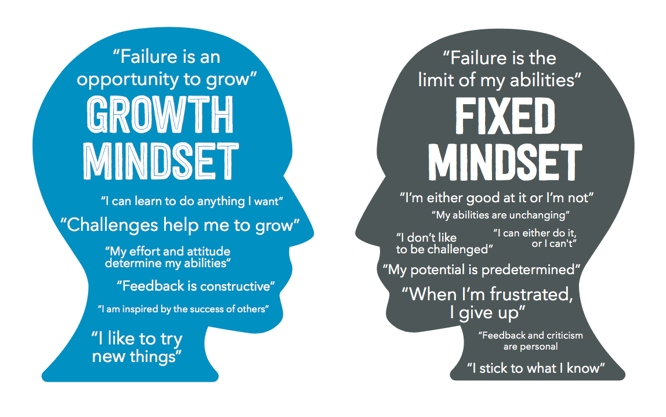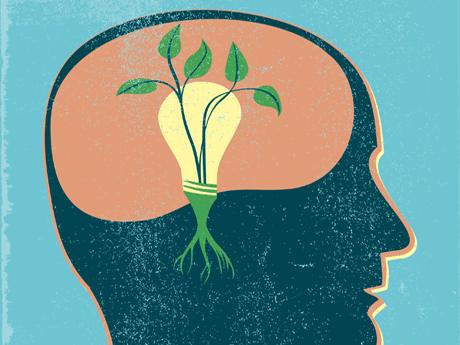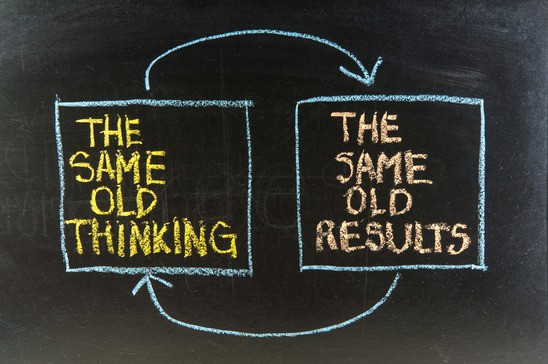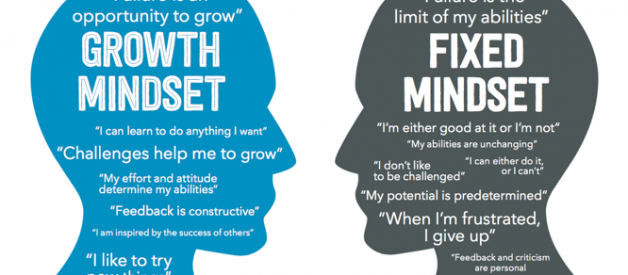It is possible to adjust internal monologue toward positive outcomes
The popular US radio host, educator and writer, Debbie Millman once said
anyone who imagines less undoubtedly deserves less.
This was part of what is now considered one of the best commencement speeches in history. Debbie went on to ask her audience to do what they love without stopping until they achieve it and to imagine immensities and generally work as hard as possible.
At the core of this speech are the belief systems regarding human abilities and how these systems can predict success and influence behavior. Another psychologist, Carol Dweck, writes about the two mindsets and goes on to explore the things that motivate people to succeed and the source of the mindsets. According to research she is conducting, Carol has been looking at the role of mindsets in the motivation people have to succeed as well the origins of these mindsets.
Carol Dweck is a Stanford psychologist who has spent years studying the human belief systems and how they work. She has written a very popular book regarding this study. The book is referred to as Mindset: The New Psychology Success. It is through her works that much of the understanding of the belief system stems from. Carol takes an in-depth look at both conscious and unconscious human beliefs. According to studies she has conducted over the years, she states that it is possible that making simple adjustments to these belief systems can have immense impact in just about all aspects of our lives.
Two types of mindsets: Fixed mindset and growth mindset
According to the Stanford research psychologist Dweck, one of the most basic beliefs all human beings posses is focused on how each individual views their personality.
There is the ?fixed mindset? and then there is the ?growth mindset?.

The former mindset basically assumes that human creativity, character and intelligence are static and cannot change, grow or improve in any notable manner. Such people also believe that success is generally a measure of our basic intelligence measured against a fixed standard. These individuals usually aim for success at all costs and will do all they can to avoid failure. This mindset could be the result of Adverse Childhood Experiences (i.e. emotional and affective deprivation), traumas or stress.
On the other hand, there is the growth mindset which relishes a challenge and views failure as an opportunity for further growth, lessons and to further extend capabilities. Most human behavior is modeled along these two mindsets. They usually manifest in our minds at a pretty early age and will affect how we relate with both failure and success and the human capacity to seek and acquire happiness. According to Carl?s research, these two mindsets will push us forward yet also prevent us from ultimately accomplishing our goals.
The individual?s view of self will determine everything about them. For instance, a person who has a fixed mindset will believe that the personal qualities such as wisdom cannot change. Such a person will try to prove themselves again and again. They will do so in their personal and professional life, in relationships and in other aspects of their life. People with this kind of outlook or mindset will usually look at all situations in life as a success or fail and wonder how others will view them depending on an outcome.
There are benefits of switching to the growth mindset
It is possible, and advisable to change the beliefs from a fixed mindset to a growth mindset where a person believes they can get better, do better and accept failure and learn from it.

According to the research findings, people who change their mindsets can greatly benefit from the growth mindset. This particular mindset installs a serious desire in the person for learning. Rather than focus on proving over and over how awesome on is, it is much better to get better at most things by taking time and making some effort to learn.
People who adopt a growth mindset will have a passion for learning and not a desire for approval. Effort and continuous practice can help us improve on qualities such as creativity and brilliance as well as qualities such as relationships, friendships and so on. With such mindsets, a person will not feel like a failure when they fail but will endeavor to learn from the failure, turning this bad experience into a learning lesson instead.
Findings from 20 years of research
Carol Dweck has been studying human motivation for the past 20 years and according to her findings, there are amazing results witnessed when individuals believe that personality, emotional management and intelligence can be developed and are not simply engrained traits. This is true for both children and adults.
People with the fixed mindset are consumed by every situation and face it as a win or lose situation. They keep focusing on how they will look in case of either outcome. Such people focus all their energy, time and efforts into winning in any situation. They leave no room for failure, for trying again and so on. Each situation is simply assessed as either a win or lose and never a chance to learn, grow and develop. But changing such a mindset can have very positive results.

According to a different school of thought, the hard one is dealt with only at starting point. This means the qualities one is handed at birth can be nurtured, developed and improved with time. People with such a mindset do not necessarily believe that any person can be anything in the world they want to be but that a person?s potential is unknown but with years of hard work, learning and determination, a lot can be achieved. The best part of this mindset, according to the researcher is that people develop a desire to learn rather than a yearning for approval.
Lots of people are attracted to books such as those that reveal secrets of the world?s richest billionaires. Such books usually contain pointers only which by themselves are unconnected. People who read such books feel inspired for only a couple of days. However, those who proceed to understand the concept of the fixed mindset versus the growth mindset will be able to understand how these points connect to each other.
In conclusion
Some points to ponder include the fact that there is no need of proving how great one is they can become better and no need to disguise shortcoming which instead can be overcome. Good friends are those who will challenge you to grow and not those who will tell you what you want to hear. The researcher goes on to state that it is much better to chart a new path than follow the tried and tested route. It is much more rewarding to stick with something and keep pushing until the desired result is achieved.
This is what is considered the true hallmark of the growth mindset. It is this very mindset that enables people to succeed in even through some of life?s most trying moments. With this kind of mindset, it will be possible to discover the step-by-step procedure of becoming better and doing all that is necessary to eventually achieve any set goal in life. Each of the two mindsets will therefore lead to a host of thoughts with totally different results.


